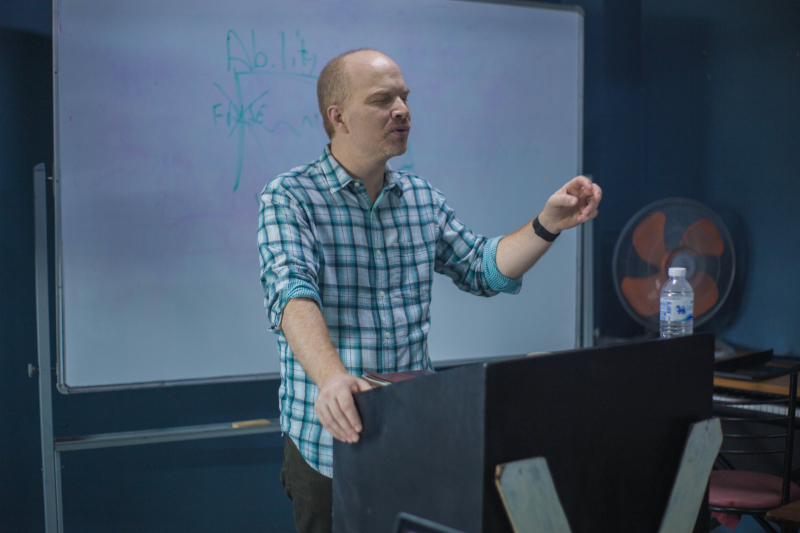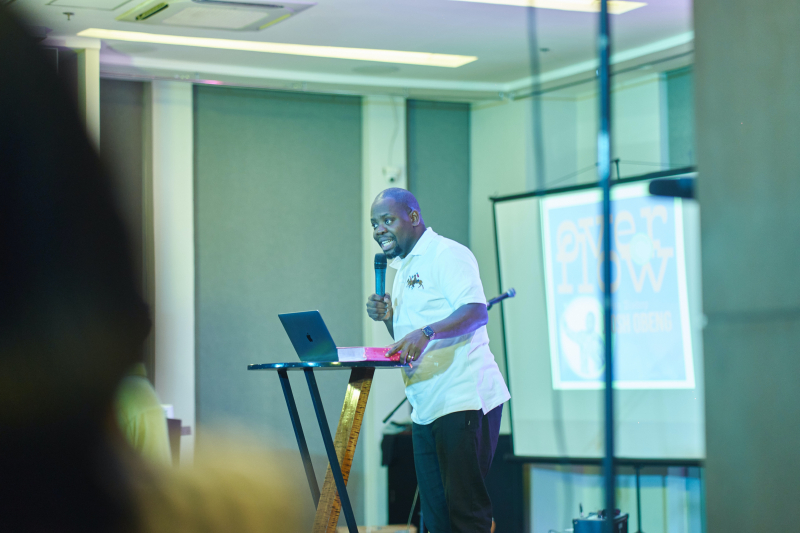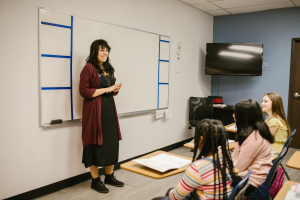Top 11 Most Asked Teacher Interview Questions with Answers
A number of questions typically form the basis of teacher interviews. Here are some of the Most Asked Teacher Interview Questions with Answers. Reading over ... read more...these inquiries will give you a sense of what to anticipate and assist in your interview preparation.
-
You will have the chance to talk about your commitment to teaching when this topic is asked of you in an interview. Feel free to include personal tales in your response as every teacher has different motivations for choosing this line of work. You undoubtedly have a reason for wanting to pursue schooling. Perhaps you enjoy educating your friends, are a whiz at trivia and bursting with information, or adore interacting with kids.
Don't simply think about what you enjoy about teaching; also consider what you can contribute. Be careful to describe your enthusiasm for teaching and any individuals or experiences that motivated you to pursue the career.
Answer:
The influence of my mathematics teacher in high school on my life led me to become a teacher. I struggle with math, but she took the time to not only teach the concepts in a way that made sense to me, but also to make me realize how equally valuable all forms of intelligence are. Teaching the material that the future leaders of our world need to know is the most important task there is, but even more so is demonstrating to them their value, potential, and capacity for developing their own opinions via critical thought and observation of the world around them.

Image by fauxels via pexels.com 
Image by Vanessa Garcia via pexels.com -
Interviewers want to see that you truly care about students' growth both inside and outside of the classroom, not only getting them to perform well academically. In essence, you are concerned about people and their success, and you have considered what that achievement will be like for pupils as well as how you will assist them in achieving it.
When it comes to your particular teaching style and frame of mind, you should be honest. But, keep in mind the philosophies of this institution as well, and try to highlight the areas where your ideals naturally diverge.
For instance, you may discuss your community approach to education, which, in the words of Mary Findley, senior teacher success manager at Skillshare and a former elementary school teacher and core member of Teach for America, means "understanding that you're one piece of this person's path. This is one of the Most Asked Teacher Interview Questions with Answers.
Example:
Everyone benefits, in my opinion, when teachers provide students with the support they need to not only get the questions right but also to apply what they have learned to solve problems on their own in the future. I believe that it is my responsibility as a teacher to support my students not only through the lessons I present but also through the various difficulties they may encounter at school. I should collaborate with them and other support systems to ensure that they feel motivated, at ease, and joyful in the classroom.

Image by JESHOOTS.com via pexels.com 
Image by Max Fischer via pexels.com -
It could be difficult to have all of the students in the same classroom at the same time because they don't all learn or behave in the same ways. Student problems can manifest in a variety of ways, from declining grades to disrupting lessons. Interviewers are so interested in learning if you are capable of assisting students in overcoming the many challenges they might encounter.
A good answer delves into figuring out the cause of a student's behavior, as that's generally the most significant step. An excellent technique to make your point is to use an example tale. Simply make sure that your story is properly organized to deliver the message you desire.
Example:
Pulling them aside and having a quiet discussion about the matter would be my first course of action. My primary inquiries would delve into the motivations behind this student's actions. Once I realize that, I try to collaborate with them to find a solution. This technique was applied in my previous classroom where I had a student who struggled to stay seated throughout classes. I discovered that he felt constrained and uneasy when he sat down for an extended period of time.
We discussed how his actions affected the other students in the class and came to the understanding that he could raise his hand if he was feeling very worried, and I would then permit him to walk about the room when it was appropriate. In order to encourage other students to occasionally get up from their seats, I also made some of my lessons more interactive and hands-on.

Image by Katerina Holmes via pexels.com 
Image by Katerina Holmes via pexels.com -
Interviewers are interested in learning how you persuade students to do what you want them to. ngaging others through video involves a lot more imagination than when teaching in person, this is a particularly crucial quality to look for when recruiting remote teachers. It is one of the Most Asked Teacher Interview Questions with Answers.
Motivating your class is essentially about having a personalized strategy. You'll want to demonstrate your ability to keep pupils' attention in a classroom while also taking into account their individual demands and motivations. Thus, be sure that your response demonstrates a customized strategy.
Example:
It is crucial to bear in mind that the best way to keep a pupil motivated is to provide them with a positive reinforcement. I think the reward is the most positive thing that can motivate the children's spirit, they will have a sense of victory and pride in their achievements, thereby becoming more trying.
Whatever I can see students appreciate getting and it varies from student to student, whether it be candy, a star, a sticker, or even just a compliment, might be this. I always attempt to be just and consistent with everyone because I never want kids to feel excluded or favored. But I believe that those brief flashes of recognition are what make kids joyful and eager to learn.

Image by fauxels via pexels.com 
Image by Andrea Piacquadio via pexels.com -
This question might be posed to you to find out how you would encourage interactions with parents of students. Part of being a teacher involves interacting with parents and guardians—i.e., the people who impact how your students learn and behave in the classroom just as much as (if not more than) you do. You may frequently improve your relationships with the pupils by developing trust with the adults in their lives, which will also help you establish some consistency between school and home.
Parents are crucial to their child's academic achievement, so teachers must interact with parents in a clear and efficient manner. A smart response will stress the importance of parental involvement in a child's education and outline your strategies for doing so.
Example:
I believe it's crucial to get to know the significant family members of each student. In order to better understand each student's family, I want to meet with them individually at the start of the school year. In order to learn more about the student's needs, family dynamics, and home life, I'll also send out a survey. Then, as the year progresses, I build on that foundation by staying in touch with the student to share encouraging news and little triumphs as well as to talk about any difficulties the student may be having in the classroom or with their behavior.

Image by Yan Krukau via pexels.com 
Image by Yan Krukau via pexels.com -
You'll interact with more people than just parents and pupils. Your interviewer wants to know that you can work with just about anyone because you'll frequently need to collaborate with assistants, school personnel, and other teachers to help pupils achieve.
An excellent method to demonstrate that you can communicate and work with others even in difficult circumstances is to share a story about a team setting where things didn't go as planned. So instead of focusing on the issue, highlight how you overcame it to produce something worthwhile. Even if you lack teaching experience, you can still demonstrate your methods by using examples from your past work in another setting.
Example:
In my previous position as a project coordinator, I had to work with our account managers to meet a client's extremely short deadline. The project required numerous modifications, which left us all feeling a little frantic, but we came up with a plan and divided the work, staying up late on a few occasions to make sure we finished on time. We couldn't have done it without cooperating, and I firmly believe that this is also true when a teacher collaborates with other staff members; you can't do it alone if you want to successfully create a learning environment that supports each kid as an individual and works for all of them.

Image by cottonbro studio via pexels.com 
Image by Micah Eleazar via pexels.com -
"When you run into things that are barriers, how do you overcome them?" is what the interviewer wants to know with either of these questions. In other words, the interviewer is interested in learning how you approach difficulties. The interviewer's desire to see "that drive for achievement" in teachers is also demonstrated by how you respond to this question.
Choose a tale where you were forced to grow as a writer yet finally achieved success. Not only should you discuss the outcomes, but also the way you solved the problem. It can be seen as one of the Most Asked Teacher Interview Questions with Answers.
Example:
While I worked in retail, there was one especially challenging customer who wasn't happy with their purchase. I was motivated to make things right even though the majority of my team was having trouble connecting with them. As a result, I was patient and gave their grievances my full attention without making assumptions about the nature of the issue or the appropriate course of action.
In addition to assisting me in comprehending the source of their problem, it also made them aware that I intended to cooperate with them. In the end, we came up with a solution that the customer appeared to think was a good compromise. They were in a much better mood when they left the store than when they had arrived, and it felt terrific to make someone else's day.
Image by Adrian Agpasa via pexels.com 
Image by fauxels via pexels.com -
Your professional development as a teacher depends on how well you receive and use feedback. A competent teacher is someone who is able to take in and pay attention to ideas from those around him in order to enhance both the effectiveness of his instruction and the rate at which students assimilate new information.
Think of an instance when you received feedback that was difficult to accept but eventually improved your performance at work. Tell about how you took it (hopefully with an open mind!) and how you changed it.
Example:
One of the instructors on my team at my previous school told me that kids there had been discussing how confused they felt following a recent math lecture. They were griping that I was moving too quickly. Receiving this critique was difficult since I had assumed that this class was content with my teaching approach and was learning a lot. I had to pay attention to it, though, I knew. In order to construct a color-coded card system throughout all of my classes—not just the one that complained—I did so.
Red, yellow, and green cards were given to each student, and I developed the practice of pausing every few minutes to ask for cards. Students would hold up red, yellow, or green cards depending on whether I needed to slow down or accelerate. I would make the necessary adjustments, and as I learned the ideal pace for each class, I gradually saw an increase in the number of yellow cards. Also, this allowed me to identify students who were consistently receiving red cards so that I could provide them with extra support or attention outside of class.

Image by Arthur Krijgsman via pexels.com 
Image by Yan Krukau via pexels.com -
This question might be presented in a variety of ways, depending on the subject and classroom you're enrolling in. Yet, the most important thing is "being able to appropriately demonstrate mastery of the subject [course] compared to just knowing the content." Do you truly comprehend the subject matter you are teaching from top to bottom?
You should describe the steps you took to find the problem and then your plan of action for resolving the confusion or difficulty your pupils are experiencing with the topic.
Example:
I've always been self-aware that before I go to class, I need to prepare the curriculum and teaching content for students in advance. I need to prepare well so that if you have any questions you want me to answer, I can answer them clearly. And when students make mistakes, I can point them out and lead them in the right direction.
Students frequently struggle with organizing their work according to place value or decimal. They can place the five directly beneath the eight and therefore provide the incorrect response. To prevent confusion, I would advise them to arrange the decimals in a straight line before adding placeholder zeros. To ensure that all the decimals are in line, I would also advise them to draw a line from each addend all the way down to their sum. To avoid common errors like these, I always advise students to read their work carefully and double-check their work.

Image by ThisIsEngineering via pexels.com 
Image by Tima Miroshnichenko via pexels.com -
This query displays whether you did any background research on the district and school. It's clear that you're serious about the position if you've done extensive study on the district's test scores, student body, and community perceptions.
Show that you are familiar with both the school and its when you respond to this question. Describe how this knowledge has heightened your interest in the institution. A compelling response can contain details on recent exam results, particular programs, or accolades the institution has received.
Example:
I am inspired by this school's reputation for excellence and for encouraging creativity through its renowned arts program. Moreover, the quality of teaching at your school is always among the best in the country, so becoming a teacher here has been a dream of mine for a long time. In addition, extracurricular activities to connect teachers and students organized by the school also make me extremely excited because I personally love children very much.
I'm very motivated to present my teaching methods because I've noticed a decline in AP test performance in previous years. After a research process, I also learned that the school focuses on the field of foreign languages; and I am very confident in my ability to teach foreign languages with the certificates that I have obtained and 4 years of studying abroad. I have no doubt that I could raise pupils' test scores and chances of success.

Image by Alena Darmel via pexels.com 
Image by Max Fischer via pexels.com -
Standardized test preparation is an essential component of the teaching profession, especially for those who work in public schools. A test needs to consider aspects such as a student's performance, as well as state regulations, and that state's curriculum.
You should explain how you included many standards into your lesson plan as well as how you created a rich curriculum that wasn't solely centered on testing requirements when responding to this question. You need to show the employer the flexibility in taking the test so that both you and the student get the best results.
Example:
Standards must be taken into consideration when creating a curriculum. In order to successfully structure a school year, a curriculum must be well thought out, and pupils must be routinely evaluated. My method is to create lessons by constructing them around academic criteria, but I don't only teach for testing.
More material than only what the kids need to know for the standardized test is covered in my lesson plans. Frequent evaluations allow me to determine how well my students comprehend the subject, and I use my curriculum to ensure that they have learned the skills required for the test. Therefore, I am always flexible in combining elements together to make a perfect test for my students.
Image by Tima Miroshnichenko via pexels.com 
Image by Ksenia Chernaya via pexels.com
































